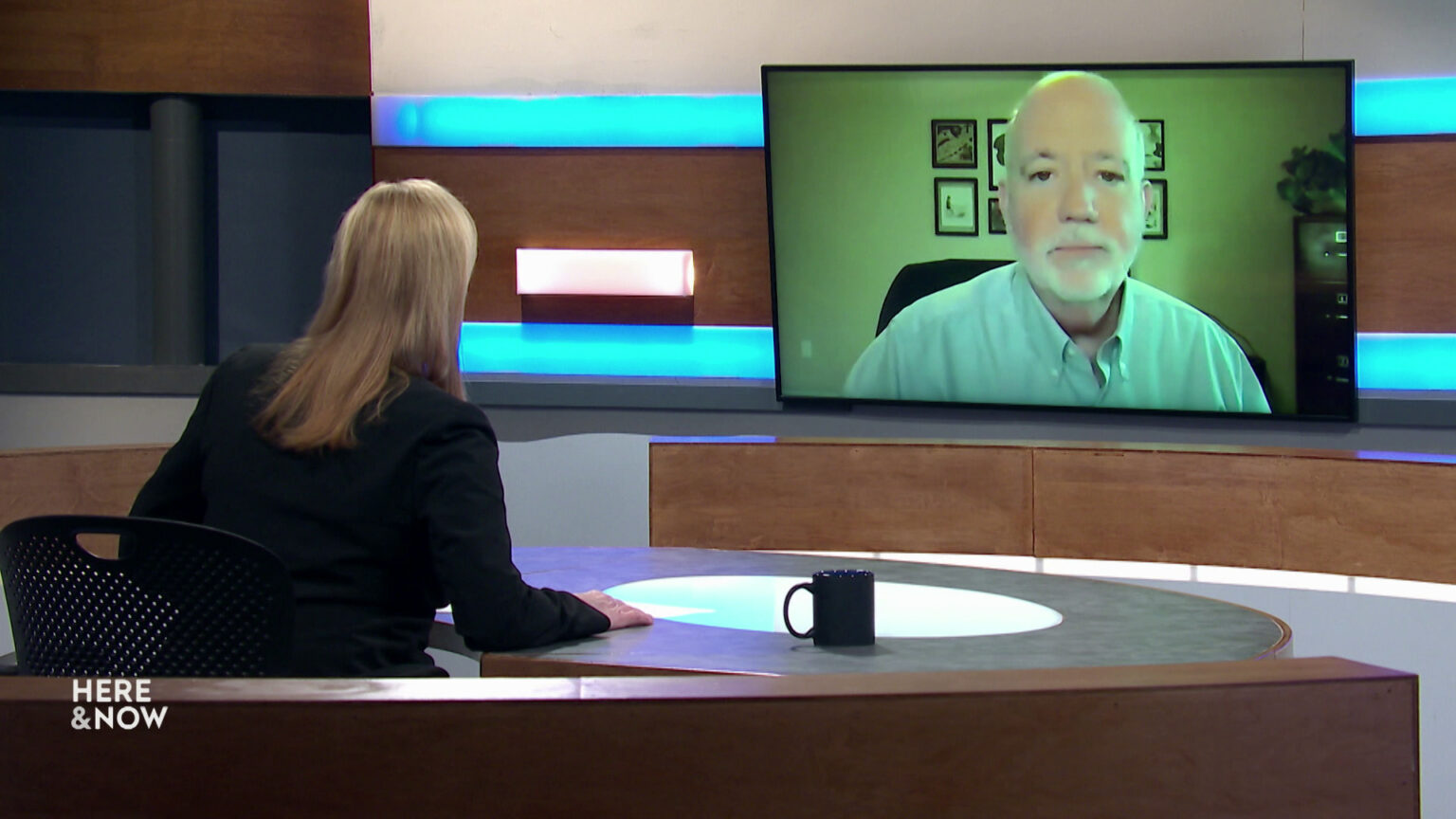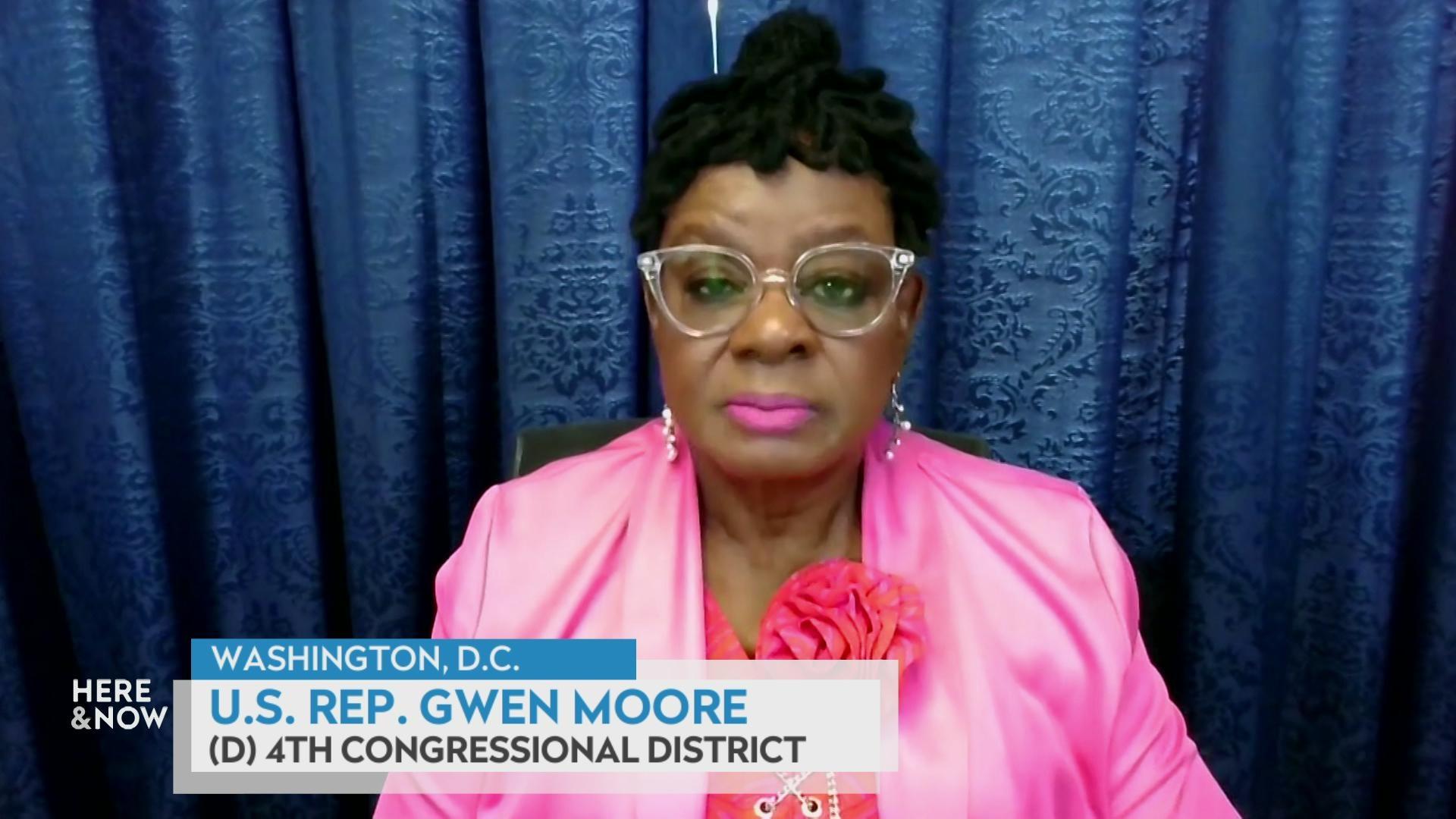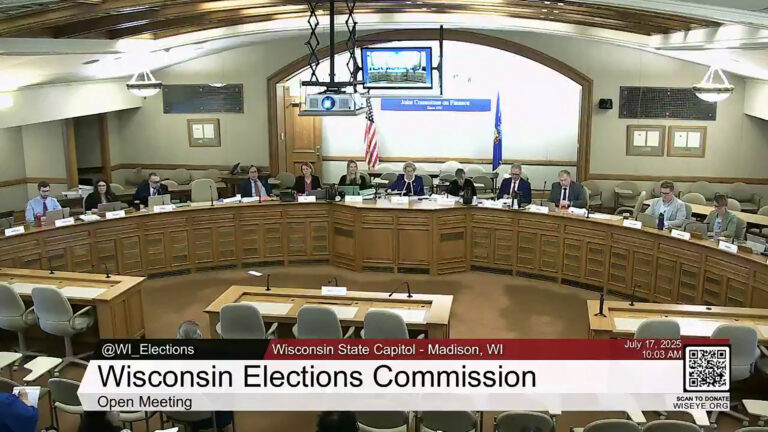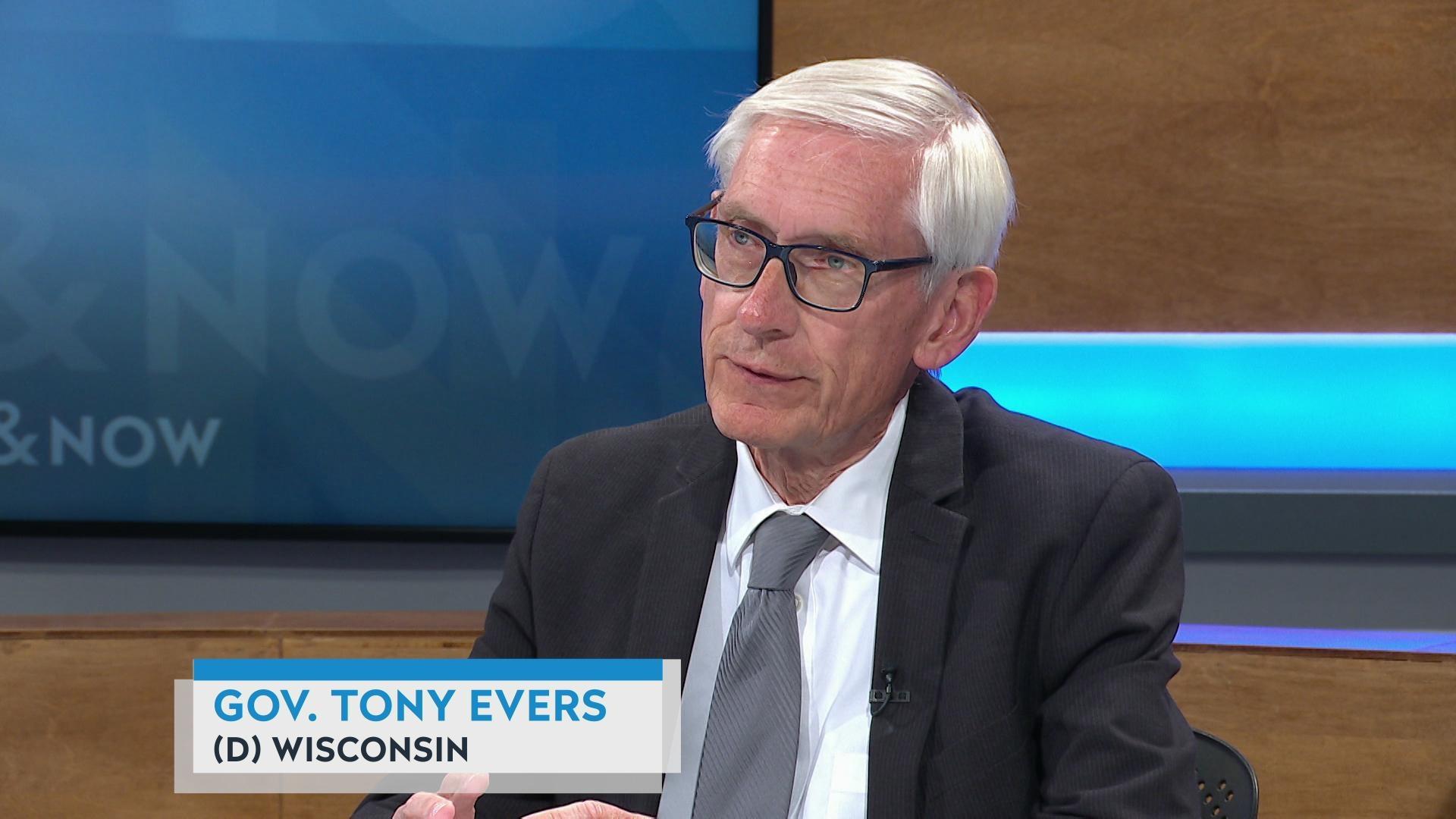'Here & Now' Highlights: Village President Jim Rafter, Rep. Shannon Zimmerman, Amy McGovern, John Will
Here's what guests on the March 8, 2024 episode said about conditions at the Green Bay Correctional Institution, a data privacy bill awaiting legislative action, updated methods of reading instruction and food insecurity among college students.
By Frederica Freyberg | Here & Now
March 11, 2024

Frederica Freyberg and Village President Jim Rafter (Credit: PBS Wisconsin)
Allouez wants the state to close the maximum-security Green Bay Correctional Institution because it’s in such bad condition, and Village President Jim Rafter said the time to make decisions on its closure is now. A bill called the Wisconsin Data Privacy Act passed in the Assembly and its author state Rep. Shannon Zimmerman, R-River Falls, called on the state Senate to take up the proposal. The state is set to proceed with a new list of reading instruction methods for Wisconsin schools — literacy and reading specialist Amy McGovern describes why the curriculum is being updated. Food insecurity on college campuses is something that John Will, the president of Northwood Technical College is seeking to address by aiming a donation toward a new campus food pantry.
Jim Rafter
Village President, Allouez
- The 125-year-old Green Bay Correctional Institution has been described as being in a “deplorable” condition. Rafter said the only real choice is to close it, as fixing it is cost prohibitive. He discussed conditions inside.
- Rafter: “You’re supposed to be able to live in pods where those who are incarcerated can get to the outside to get to school, get to the library and live more in a communal environment versus a cell. The cells at GBCI — the prison was designed for approximately 750 inmates, and today it houses almost a thousand. They are in cells that were designed for one person, but now there are two people in them, and there are the cells you can reach across and lay down and touch all the walls. So, it’s not designed for the people that are there. It is dark and dingy. It has mice infestations, which the state has been dealing with for over a year. The attitude or the anxiety level within the facility due to being on lockdown since June of 2023 — it’s creating an awful lot of anxiety and a lot of, I’ll say, violence. In 2023, the number of investigations for violent offenses that take place in GBCI are equal that, almost equal that of 2021 and 2022 combined, and they are on lockdown for half the year. And so the conditions just aren’t good.”
State Rep. Shannon Zimmerman
R-River Falls
- Zimmerman authored AB 466, called the Wisconsin Data Privacy Act, which passed via a unanimous voice vote in the state Assembly and awaits Senate action. The proposal would provide certain protections for consumers from the use and sale of their private data gleaned from cell phones and other devices like smart speakers.
- Zimmerman: “People have devices in their homes that are listening all the time, and information conversations that are shared in the privacy of your living room by your kitchen table. I think there’s an expectation of individuals that, in fact, is private, because we wouldn’t let somebody just walk into our home, sit there and listen and then use that information. So it really is a broad, broad array of data.”
- Zimmerman described what this bill would do if passed and signed into law.
- Zimmerman: “Number one, individuals in the state of Wisconsin would have the right to say to any data collector, what do you have on me? Number two, to whom have you shared or sold that information? And third, and finally, you have a right to say no. Delete it. Please remove it. I’m uncomfortable with that. Those are the three main pillars of this legislation.”
Amy McGovern
Associate Director of Continuous School Improvement, CESA 9
- Given that statewide scores show under 40% of students test proficient in reading, the bipartisan Act 20 mandates the “science of reading” and phonics instruction over another approach called balanced literacy. The latter approach includes the “three cueing” method where students are taught to read by referencing photos to understand the text. As part of Act 20, this type of instruction is not allowed and updated curriculum options were approved and chosen by the Early Literacy Curriculum Council, which is made up of educators. McGovern has been a member of the council.
- McGovern: “The absence of ‘three cueing’ will definitely make an impact for a lot of students. The curriculum resources are designed to be the ones that the council selected, really at a high bar of quality, and no resource is going to be perfect, of course. So, all those other things, factored in with training and leadership support, all matter. But the actual design of the curriculum that we selected is far more likely to produce readers.”
John Will
President, Northwood Technical College
- Food pantries across Wisconsin have seen triple digit increases in demand in recent years. National figures show college students experience food insecurity at much higher rates than the general population. Northwood Technical College — which has campuses in Ashland, New Richmond, Rice Lake, Superior and outreach centers in other communities — has found close to half its students experience food insecurity. When an anonymous donor gave the college a $100,000 gift, the college chose to use the money to open a food pantry. Will explained why providing this service is a priority.
- Will: “We have many students who receive Pell Grants, which is the need-based, federal grant program. And so we know we have students who are in need, some who are in poverty. We also have students who are supporting families. Many of them work part-time, and can’t work full time because they’re going to school. They made that really important decision to try. They’re trying to go to school to get more education, to provide a better life for them and their families. But it’s a struggle financially. And, of course, food is one of the basic things that they need to purchase. So that’s something that’s a barrier to them, being successful not only for them but for their family. Given our connection with them, a food pantry seemed like a great way to help them overcome that barrier.”
Watch new episodes of Here & Now at 7:30 p.m. on Fridays.
 Passport
Passport











Follow Us